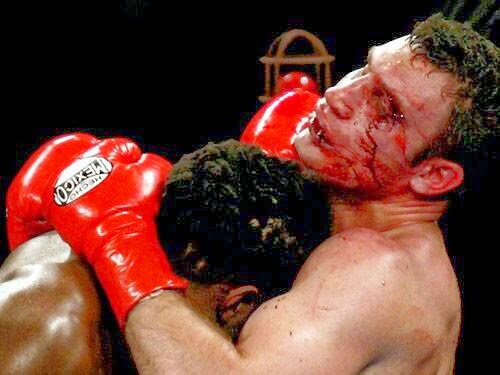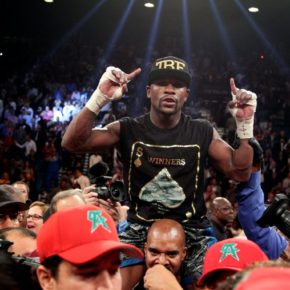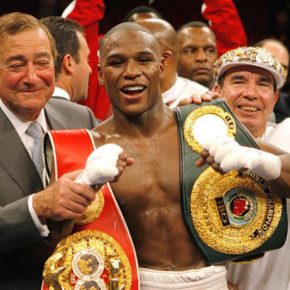 Vitali Klitschko (45-2 41KO), retired world heavyweight champion,current Ukranian poliitical figure,
Vitali Klitschko (45-2 41KO), retired world heavyweight champion,current Ukranian poliitical figure,

versus Lennox Lewis (41-2-1 32KO) June,21 2003 @ Staples Center, Los Angeles, for WBC, IBO RING, world heavyweight titles.
The Closing of ½ of Boxings “Iron Curtain”
by NORRIN RADDICAL
After nearly two decades atop arguably boxings most prestigious and heralded weight-class, WBC, WBO and Ring Magazine heavyweight champion, Vitali Klitschko (45-2 41KO), has decided to step down, in pursuit of higher political aspirations in his native Ukraine. “Doctor Ironfist”, along with his younger brother, IBF, WBO, IBO, WBA Super and The Ring world heavyweight champion, Wladimir Klitschko (61-3 51KO), have combined to record one of the longest and most pronounced reigns ever established in the heavyweight division, (being both the 8th and 2nd, longest reigning heavyweight champions of all-time, respectively), and are undeniably the most successful sibling tandem in the history of the sweet science.
The elder Klitschko began his historic rise to heavyweight prominence, after initially competing as an amateur and professional European kickboxer during the early and mid 90’s, before turning professional pugilist in 1996, winning his first 24 bouts by KO and TKO, and subsequently capturing his first professional title, the WBO Heavyweight crown, in his 25th pro fight from the U.K.’s Herbie Hide by way of 2nd round KO, on June 26, 1999. After improving his record to an impressive 27-0, with 27 KO’s, Klitschko faced, in his third title defense, American heavyweight Chris Byrd in April of 2000. Suffering a torn rotator-cuff in his left shoulder, Klitschko relinquished the fight, throwing in the towel at the end of the 9th round, despite being ahead on all three judges official scorecards, giving him his first professional defeat. Klitschko, however, remained a force to be reckoned with within the heavyweight division, as he collected five more consecutive victories, setting up a showdown with WBC Heavweight champion Lennox Lewis in June 2003. During the match Klitschko, who was frequently beating the champion Lewis to the punch, by way of punch volume and landing the harder more telling blows, found himself ahead on all three judges scorecards, 4 rounds to 2. Never the less, due to a cut above Klistchkos’ left eye, opened up by a big right hand from Lewis in the 3rd round, the bout was stopped by referee Lou Moret, after the gash was determined to be severe enough to potentially cause permanent damage by the ringside doctor. Klitschko would go on to regain his position as heavyweight champion, by stopping South African born, Corrie Sanders in the 8th round of their April 2004 bout, winning the WBC and Ring titles vacated by Lewis after his retirement from the sport earlier that year, and also avenging the loss of the younger Wladimir, who had been previously stopped by Sanders. Klitschko continued to defend his title, until November 2005, in which he suffered a severed ligament to his right knee during sparring. Klitschko retired, to undergo extensive surgery and allow the injury to heal, in which time the WBC bestowed upon him the title of “champion emritus” for the first time. Klitschko would return to activity within the squared circle, in 2007, and eventually, again, for the third time in his career, capture the heavyweight title, from then current WBC champion Samuel Peter, by way of 8th round stoppage.
Klitschko would subsequently continue to successfully defend his heavyweight title, putting together a series of comprhensive victories over the next half decade, until his announcement of retirement, for the second time in his career, this past December of 2013. During his first hiatus from the ring, in 2005, Klitschko became heavily entwined within the political landscape of his homeland of the Ukraine, running for the office of Mayor of Kiev in 2006. Despite ultimately losing the election, as he’d done during his professonal boxing career, Klitschko persevered, undeterred by defeat, and was eventually elected in the following years, as a member of the City Council, as his political party leader, and into the Ukranian Parliament in 2012. Now planning his candidacy to run for the Ukrainian presidency, the boxing world observes what is most likely the culmination of 1/2 of one of the heavyweight divisions most unilateral reigns in the hisory of the sport.
Although indusputable in their conflated, statistical preeminence as heavyweight champions, the “Klitschko era” has been rife with criticism, mainly based on what many have considered a very dull, lackluster, robotic fighting style and lack of suitably competetive opposition during their tenure (Vitali also admitted to banned steroid use during the onset of his career). Although these assessments can’t be totally discounted, equally it should be taken into account, the effective profeciency with which the Klitschko brothers executed the fundamentals of boxing, as well as playing a significant,if not crucial and direct role, in the emergence of many of todays eastern European boxing notables, including, fellow Ukranian, featherweight prospect Vasyl Lomachenko, light-welterweight champion and welterweight contender, Russian born Ruslan Provodnikov, and WBA and IBO middleweight champion Genady “GGG” Golovkin of Kazakhstan. All the more symbollically appropriate when considering that the Klitschkos’ entered into boxings’ professional ranks during the decade following the collapse of the Berlin Wall and the ensuing dissolution of the former Soviet Union.
Now, being named for the second time in his career, as “champion emeritus” by WBC president Jose Sulaiman, it will be intersting to see if Klitschko will, at some point in the near future, again answer the call of the bell, returning to the lure of the ring, in an attempt to become only the second fighter in history to capture the heavyweight title for a fourth time, (Evander “Real Deal” Holyfield being the only other boxer in history to accomplish this feat). Or will Vitali continue to pursue his aspirations in a different, though not entirely dissimilar, kind of squared circle, the arena of government, trading in the fundamentals and elements of the sweet science, for the policies and strategems of political “science”, and in the process, making room for a new generation of heavyweights to usher in the next era.





